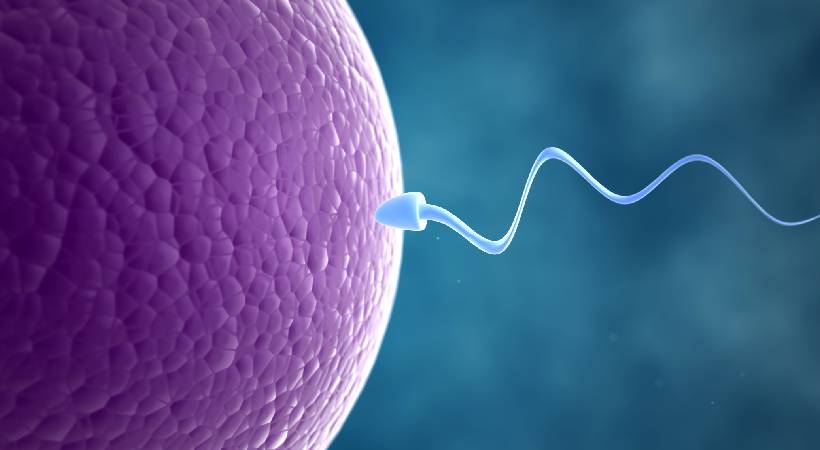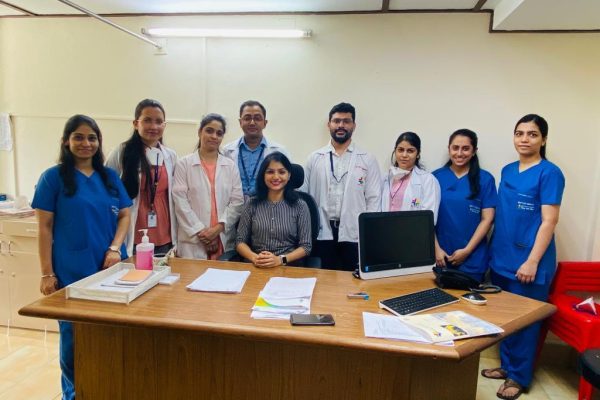Our Services

Introduction to Infertility
Infertility is defined as the inability to conceive after one year of regular, unprotected intercourse, or after six months for women over the age of 35. It can affect both men and women and can result from a variety of factors, including medical, hormonal, or lifestyle-related conditions. The good news is that advancements in reproductive technology, such as IVF (In-Vitro Fertilization), IUI (Intrauterine Insemination), and other treatments, have made it possible for many couples to achieve pregnancy.
Causes of Infertility
Female Infertility
- Ovulatory Disorders: Hormonal imbalances (e.g., PCOS) can prevent ovulation or cause irregular ovulation, making it difficult to conceive.
- Fallopian Tube Blockage: Blocked or damaged fallopian tubes due to pelvic inflammatory disease (PID), endometriosis, or previous surgeries can hinder the passage of eggs and sperm.
- Endometriosis: Tissue similar to the uterine lining grows outside the uterus, potentially affecting fertility by causing inflammation and scarring.
- Uterine Abnormalities: Conditions like fibroids, polyps, or congenital issues with the uterus can prevent successful implantation of an embryo.
- Age: A woman’s fertility naturally declines after the age of 35, largely due to a decrease in the number and quality of eggs.
- Hormonal Imbalances: Disorders like thyroid disease, elevated prolactin levels, and other hormonal issues can affect ovulation and fertility.
Male Infertility
- Low Sperm Count: Insufficient sperm in the ejaculate may reduce the chances of fertilizing an egg.
- Poor Sperm Motility (Asthenozoospermia): Sperm that cannot swim efficiently is less likely to reach and fertilize an egg.
- Abnormal Sperm Morphology (Teratozoospermia): Sperm with an abnormal shape may have difficulty penetrating an egg.
- Varicocele: An enlarged vein in the scrotum can affect sperm production and quality.
- Infections: Sexually transmitted infections (STIs) or other infections can impair sperm production or lead to blockages in the reproductive system.
- Hormonal Imbalances: Low testosterone or other endocrine disorders can reduce sperm production.
Unexplained Infertility
In about 10–15% of couples, no specific cause of infertility can be identified, despite all tests returning normal results. This is known as unexplained infertility.
Symptoms of Infertility
- For Women:
- Irregular or absent menstrual cycles.
- Painful periods or pelvic pain.
- Difficulty maintaining a healthy pregnancy (recurrent miscarriages).
- A history of endometriosis, pelvic infections, or other reproductive disorders.
- For Men:
- Low sex drive or erectile dysfunction.
- Pain, swelling, or lumps in the testicles.
- Difficulty maintaining or achieving an erection.
- A history of infections or exposure to environmental toxins (e.g., chemicals, radiation).
The main symptom of infertility in both men and women is the inability to conceive after one year of unprotected sex.
Diagnosis of Infertility
To diagnose infertility, both partners must undergo a series of tests:
For Women:
- Medical History and Physical Examination: A detailed medical history and examination help to understand menstrual cycles, health history, and reproductive conditions.
- Ovulation Testing: Blood tests to measure hormone levels (e.g., FSH, LH, AMH) and track ovulation.
- Hysterosalpingography (HSG): A special X-ray procedure that checks if the fallopian tubes are open and the uterus is normal.
- Ultrasound: To check for abnormalities in the ovaries and uterus.
- Laparoscopy: In some cases, a minimally invasive surgical procedure may be performed to look inside the pelvic cavity and diagnose conditions like endometriosis.
For Men:
- Semen Analysis: This test evaluates sperm count, motility, and morphology.
- Hormonal Tests: To check testosterone and other hormone levels.
- Scrotal Ultrasound: To detect conditions like varicocele or other structural abnormalities.
- Genetic Testing: To rule out genetic causes of infertility, especially in cases of low sperm count.
Treatment of Infertility
There are several treatment options for infertility, depending on the underlying cause:
1. Medications:
- For Women: Medications like clomiphene citrate, gonadotropins, or metformin (for PCOS) can help stimulate ovulation.
- For Men: Hormonal treatments or medications may be prescribed to improve sperm count, motility, or production.
2. IUI (Intrauterine Insemination):
- A simple, minimally invasive procedure where prepared sperm is placed directly into the uterus during ovulation. It’s commonly used when male infertility or cervical factor infertility is suspected.
3. IVF (In-Vitro Fertilization):
- IVF is often used when other treatments haven’t worked or when the infertility is more severe. It involves fertilizing eggs outside the body and then transferring the resulting embryos into the uterus.
4. Surgery:
- Surgery may be required to treat physical issues such as blocked fallopian tubes, uterine fibroids, or endometriosis. Varicocelectomy (surgery to remove varicoceles) can improve male fertility.
5. Egg or Sperm Donation:
- If the woman has poor egg quality or the man has low sperm count, using donor eggs or sperm may be an option.
6. Surrogacy:
- If a woman is unable to carry a pregnancy, another woman may carry the pregnancy for her. This is typically used when the woman has uterine issues, or health risks prevent her from carrying a baby.
Conclusion
Infertility can be a complex and emotional challenge for many couples, but with the advances in medical technology, treatment options are available to address a variety of causes. Early diagnosis and appropriate treatment can improve the chances of conception. It’s important for individuals facing infertility to seek the help of a fertility specialist who can guide them through the available options, whether it’s lifestyle changes, medications, or advanced treatments like IUI or IVF.
With proper support and treatment, many couples struggling with infertility can successfully build their families.
We’d love to hear from you !
Our Gallery








Unveiling New Horizons in Fertility, One Article at a Time
Who Is at Higher Risk for Ectopic
Expert Insights by Dr. Rashmi Bhamare – 0 to 9...
Benefits of Normal Delivery: Expert Care by
Pregnancy is a beautiful journey, and choosing the right care...
First Trimester Struggles: Gentle Guidance from a
First Trimester Struggles: Expert Pregnancy Care by a Gynecologist in...
Navigating High-Risk Pregnancy: Expert Guidance and Care
Finding out your pregnancy is “high-risk” can trigger a wave...




